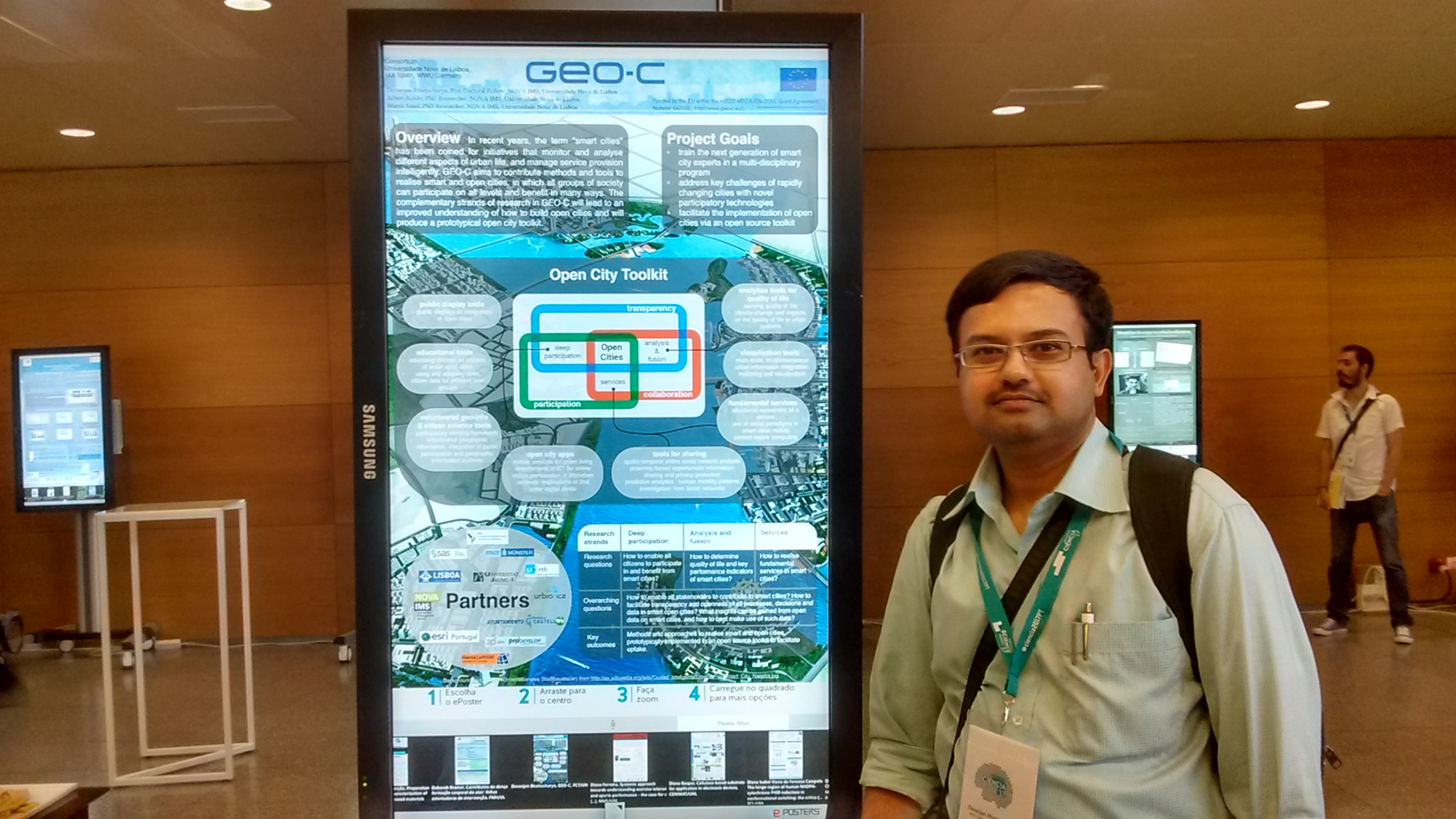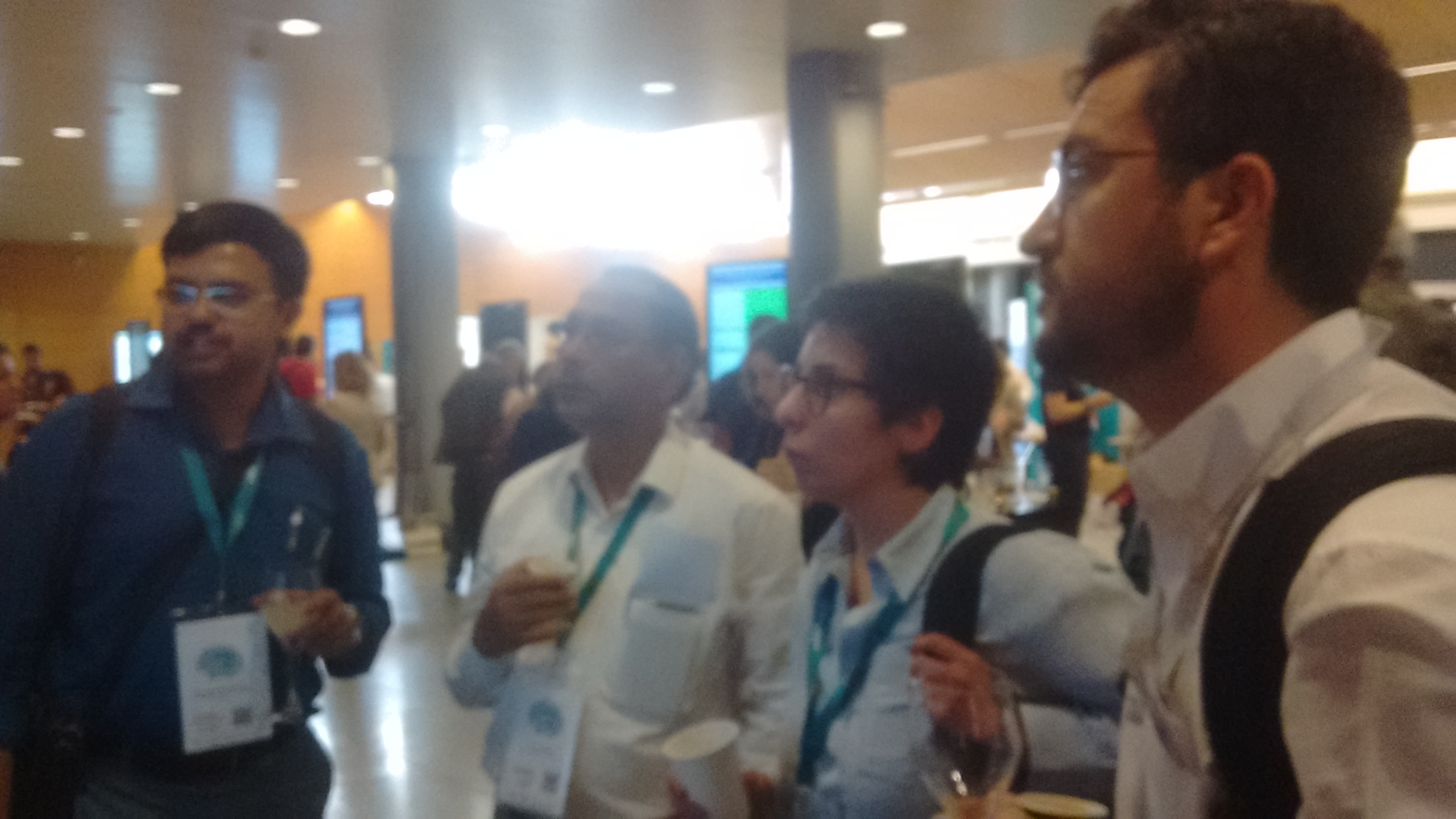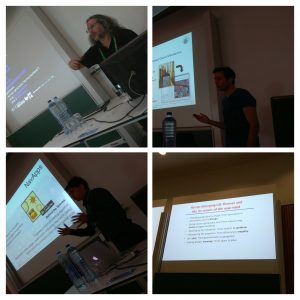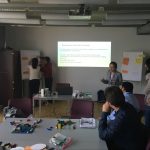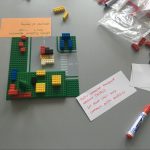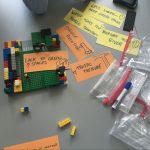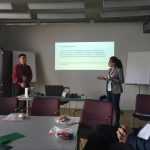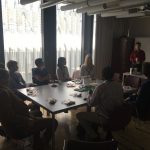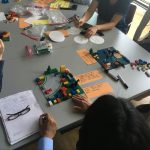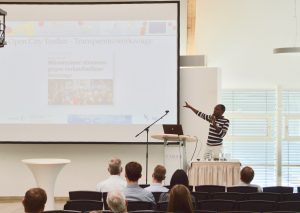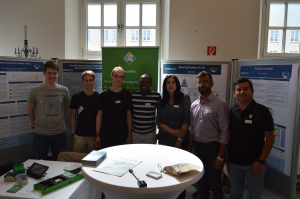The paper “Feature-centric ranking algorithms for georeferenced video search” (Authors: Holger Fritze, Auriol Degbelo, Tobias Brüggentisch and Christian Kray) has been accepted for presentation at the upcoming ACM SIGSPATIAL International Conference on Advances in Geographic Information Systems!
Abstract: While it is commonplace to retrieve photos showing a particular feature (e.g. through tools such as Google Pictures or Bing Images), spatial approaches for retrieving videos showing a particular feature (e.g. a building) have yet to be established. This article proposes five ranking algorithms to query georeferenced videos for a specific feature based on the videos’ spatio-temporal metadata. 12 relevance criteria for feature-centric video ranking were compiled from a focus group discussion. From these, four criteria have been selected for implementation: “Feature Depiction”, “Feature Illumination”, “Feature Visibility Duration”, and “Distance to Feature”. These criteria were implemented in five algorithms and evaluated regarding efficiency and user perceived plausibility. The evaluation suggests that the “Feature Visibility Duration” of the video’s viewshed with the queried feature geometry offers a good trade-off between computationally performant and cognitive plausible ranking. The obtained results are relevant to user-centered approaches for interacting with georeferenced videos.
